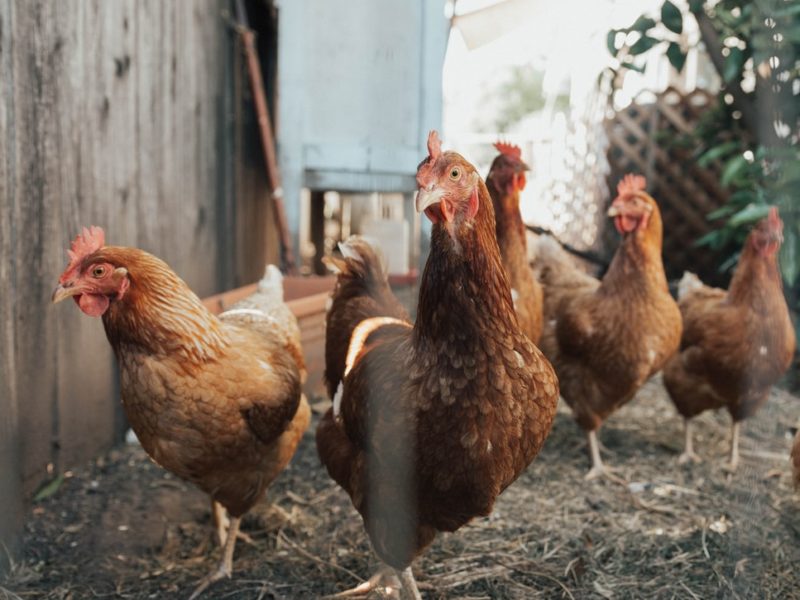
Chickens are energetic, inquisitive, and friendly animals who are fun to watch, but the decision to keep them should not be made lightly. Chickens require dedicated, consistent care and there are important issues to consider before acquiring a backyard flock.
Thinking about starting a backyard flock? Be sure you’ve thought about these things:
Every spring, feed and hardware stores in our area prepare for “chick season”. Many folks purchase chicks from these distributors to start or add to their existing flock. While chicks are adorable and fun- it is very difficult to determine the males from the females until they are several weeks to several months old. Most hatcheries sex their chicks before shipping, but there is anywhere from a 10-40% chance these chicks have been incorrectly sexed, which means you may end up with a rooster or two. Sadly, when chicks are sexed at the hatchery, the males may be disposed of in ways that many of us would find unpleasant- all the more reason to consider adopting adult chickens from rescue organizations or farm animal sanctuaries!
When you adopt from a rescue organization, you can rest assured that your hens and/or rooster are healthy and have been well cared for. Not only will you provide a rescue animal with a loving home, you will free up space at a shelter for another animal in need! What’s not to love about that?
Other important things to consider before acquiring a backyard flock:
- Check with your local zoning board to see if chickens (or roosters) are allowed in your area.
- Check with your state officials for mandatory poultry health testing requirements.
- Talk to your neighbors as they may be bothered by your chicken’s vocalizations. Also, your
chickens may wander onto your neighbors’ property. - Have a safe, appropriate shelter for the size and number of chickens you intend to keep.
- Have ample outdoor space for your chickens.
- Have a plan for manure storage and removal. Make sure it is not stored near wetlands or where
it can contaminate surface water. - Plan for a lifetime with your chickens. Chickens can live between 10-15 years, and hens will
only lay eggs for a small portion of their lives. Are you ready to keep them for a lifetime? - Locate a veterinarian for your birds. A Poultry Care book can help with minor health issues.
Purchase necessary accessories, such as waterers, hanging feeders, etc. - Plan ahead – Find a responsible person to take care of your chickens when you are away or
have an emergency.

